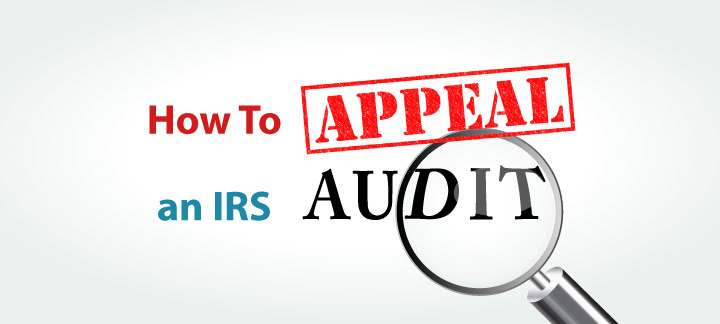How To File an IRS Audit Findings Protest - Tax Appeals
Sometimes at the conclusion of an audit, a taxpayer may be in disagreement with the audit findings. The court of appeals exists specifically for these occasions. However, in order to protest the determination of the IRS examiner at the conclusion of an IRS audit, the taxpayer must satisfy certain requirements.
Jurisdictional Requirements
The first requirement of appealing an audit result to the Appeals Office is that the Appeals Office must have jurisdiction over the case. The only way that jurisdiction is granted to the court of tax appeals is through the taxpayer filing a protest requesting appeals consideration. In a Pre-90-Day Case, the taxpayer has received a 30-day letter from the IRS but has not yet received a formal Notice of Deficiency from the IRS. In these cases, the taxpayer must file his or her protest with the Appeals Office within 30 days of receiving the audit report and 30-day letter. No taxpayer is required to submit his or her case to Appeals. Similarly, the Appeals Office may decline to take on an Appeals protest case if it determines that the case requires additional factual development.
In 90-Day cases, the taxpayer has received a 90-Day Letter, or Notice of Deficiency, from the IRS. In these cases, the taxpayer has 90 days to file a petition with the Tax Court, but may decide to file a protest with Appeals instead. In these cases, the Appeals Office must make its decision whether to take the case and render a decision within 15 days of the end of the 90-day period, giving the taxpayer enough time to still file a petition with the Tax Court.
Format and Content of an Appeals Protest
In most cases, the taxpayer must file a written protest with the Appeals Office. There are some exceptions to the written requirement for cases under a certain amount of money. According to the Code, “an oral request is sufficient to obtain Appeals consideration in (1) all office interview or correspondence examination cases or (2) a field examination case if the total amount of proposed additional tax including penalties, proposed over assessment, or claimed refund (or, in an offer in compromise, the total amount of assessed tax, penalty, and interest sought to be compromised) is $2,500 or less for any taxable period. No written protest or brief statement of disputed issues is required.”
As a general rule, here a written request is required, the taxpayer must include an acknowledgement of receipt of the 30-day letter along with the request for Appeals conference. The Internal Revenue Code also specifies additional requirements for inclusion in the written protest. The written protest must include: 1) a statement that the taxpayer wishes to appeal the findings of the audit examiner; 2) the name and address of the taxpayer; 3) a description of the proposed adjustments and findings from the IRS audit letter; 4) the tax years involved in the audit; 5) a statement of facts containing the taxpayer’s position and any contested factual issue; and 6) a statement containing any law and authority on which the taxpayer is relying for his or her position.
Settlement at the Appeals/District Level
At the District level, the IRS examiner who determines the audit liability of the taxpayer is generally not qualified to enter into compromise settlements with the taxpayer. The role of the examiner is simply to apply IRS laws and precedent to the facts of the case to determine tax liability. The Appeals Office, on the other hand, has the ability to settle cases and also has the power to enter into partial settlements if the entire case cannot be settled. The Appeals Officers also have discretion to enter into settlement based on the potential hazards of litigation, which could be beneficial to the taxpayer. Another consideration for a taxpayer is that Appeals may decide to raise new issues for examination that were not examined by the examining agent at the initial audit level.
How a Tax Attorney Can Help with IRS Audit AppealsAt the appeals stage, the IRS Appeals Agents are even more sophisticated and knowledgeable than IRS Revenue Agents. In order to achieve a favorable results on appeal, you must be able to make your case in an organized and thorough manner. An experienced tax attorney can present your case in the most convincing manner, using evidence as well as legal authority and analysis. If you have received information from the IRS documenting your right to appeal, call (858)481-4844 or fill out the contact form on this page today for a free consultation with an a Tax Lawyer who has over 30 years experience in these matters.
Tax Law References
- IRC § 601.106(a)(1)(iii).
- IRC § 601.106(a)(iii)(a)



Comments (0)